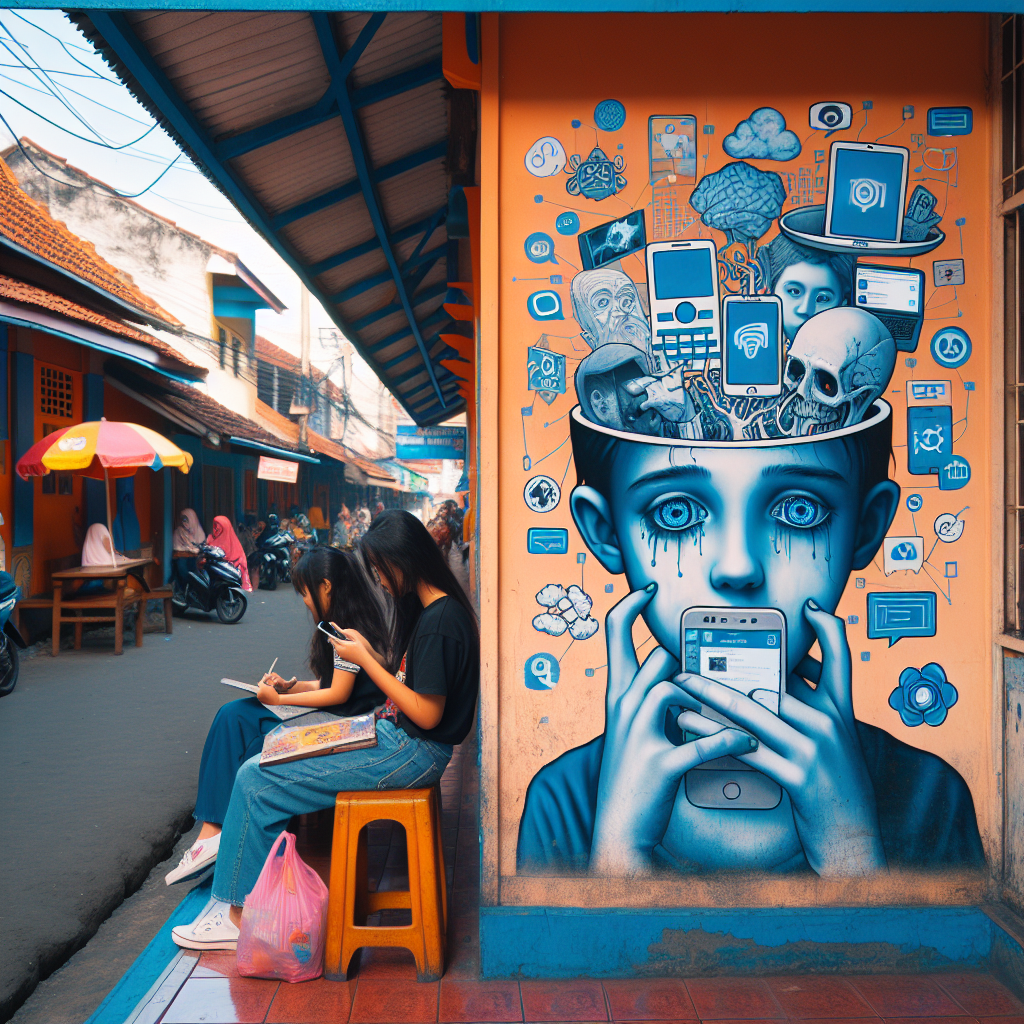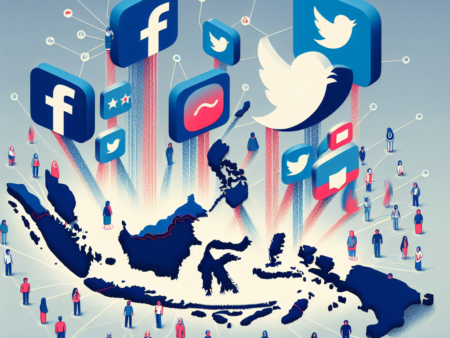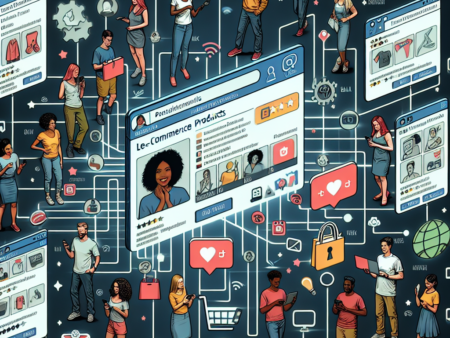Media sosial berdampak besar pada psikologi remaja di Indonesia, baik positif maupun negatif.
Dampak Media Sosial terhadap Psikologi Remaja di Indonesia
-
Table of Contents
The Impact of Social Media on Teenagers’ Psychology in Indonesia

Introduction
Social media has become an integral part of our daily lives, especially for teenagers. With the rise of platforms like Facebook, Instagram, and Twitter, young people in Indonesia are increasingly connected to the digital world. While social media offers numerous benefits, it also has a significant impact on the psychology of teenagers. This article explores the various ways in which social media affects the mental well-being of Indonesian teenagers.
The Influence of Social Media on Self-Esteem
One of the most significant impacts of social media on teenagers’ psychology is its influence on self-esteem. Adolescence is a critical period for self-identity development, and social media platforms often exacerbate the pressure to conform to societal standards of beauty and success. Teenagers are constantly exposed to carefully curated images and posts that depict an idealized version of life. This can lead to feelings of inadequacy and low self-esteem when comparing themselves to others.
A study conducted by the University of Indonesia found that 70% of teenagers surveyed reported feeling insecure about their appearance after using social media. The constant exposure to edited and filtered images can distort their perception of reality, leading to body dissatisfaction and a negative self-image. It is crucial for parents and educators to address these issues and promote healthy self-esteem among teenagers.
Social Comparison and FOMO
Social media platforms often foster a culture of social comparison, where teenagers compare their lives to those of their peers. This constant comparison can lead to the fear of missing out (FOMO) and a sense of inadequacy. Seeing others’ highlight reels can make teenagers feel like they are missing out on exciting experiences or not living up to societal expectations.
A study conducted by the University of Gadjah Mada revealed that 60% of Indonesian teenagers experience FOMO after using social media. This fear of missing out can lead to anxiety, depression, and a constant need for validation. It is essential for teenagers to understand that social media often portrays an unrealistic version of reality and that their worth is not determined by the number of likes or followers they have.
Cyberbullying and Online Harassment
Another significant impact of social media on teenagers’ psychology is the prevalence of cyberbullying and online harassment. With the anonymity provided by the internet, individuals feel emboldened to engage in harmful behavior towards others. Cyberbullying can have severe consequences on teenagers’ mental health, leading to depression, anxiety, and even suicidal thoughts.
According to a survey conducted by the Indonesian Child Protection Commission, 40% of Indonesian teenagers have experienced cyberbullying. The constant exposure to negative comments and online harassment can significantly impact their self-esteem and overall well-being. It is crucial for parents, educators, and social media platforms to work together to create a safe online environment for teenagers.
Social Media Addiction and Mental Health
Social media addiction is a growing concern among teenagers in Indonesia. The constant need for validation, the fear of missing out, and the dopamine rush from receiving likes and comments can lead to addictive behaviors. Spending excessive amounts of time on social media can negatively impact teenagers’ mental health, leading to symptoms of anxiety, depression, and loneliness.
A study conducted by the University of Padjadjaran found that 30% of Indonesian teenagers exhibit signs of social media addiction. This addiction can interfere with their daily lives, affecting their academic performance, relationships, and overall well-being. It is crucial for teenagers to develop a healthy relationship with social media and practice digital detoxes to maintain their mental health.
Positive Use of Social Media
While social media has its drawbacks, it also offers several positive aspects that can benefit teenagers’ psychology. Social media platforms provide a space for self-expression, creativity, and connection with like-minded individuals. It can be a source of support and inspiration for teenagers who feel isolated or marginalized.
Moreover, social media can be a powerful tool for raising awareness about mental health issues and promoting positive change. Many Indonesian teenagers have used social media platforms to advocate for mental health, share their stories, and provide support to others. By harnessing the positive aspects of social media, teenagers can create a more inclusive and supportive online community.
Conclusion
In conclusion, social media has a profound impact on the psychology of teenagers in Indonesia. It influences their self-esteem, fosters social comparison and FOMO, exposes them to cyberbullying, and can lead to addiction and mental health issues. However, it is essential to recognize the positive aspects of social media and empower teenagers to use it responsibly.
Parents, educators, and social media platforms must work together to create a safe online environment for teenagers. By promoting healthy self-esteem, teaching critical media literacy skills, and encouraging positive use of social media, we can mitigate the negative impacts and harness the potential of these platforms for the well-being of Indonesian teenagers.







